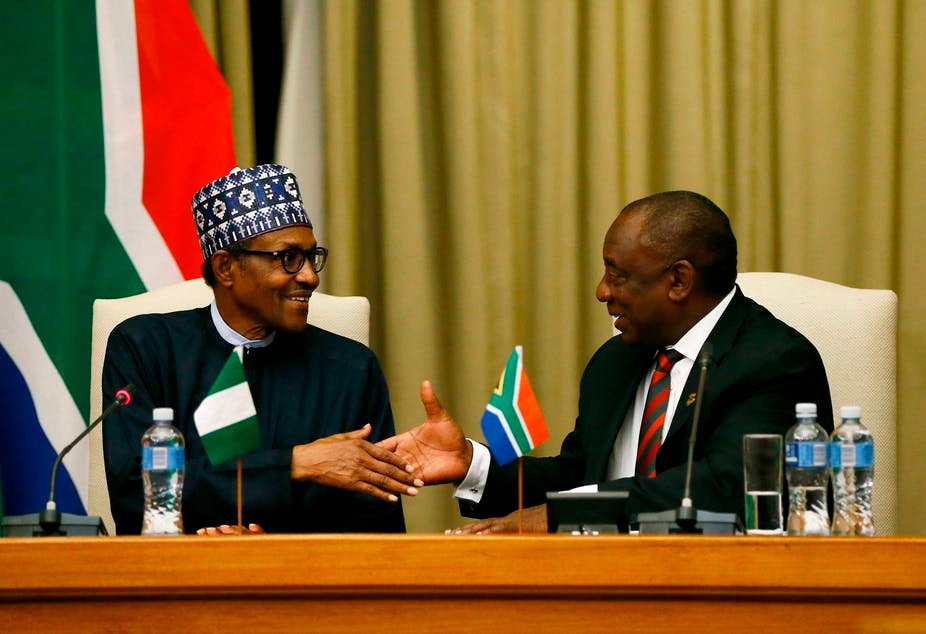Abuja, 27 February 2022 (TDI): President Muhammadu Buhari of Nigeria and President Cyril Ramaphosa of South Africa extended their handshakes into outer space activities. The formation of a Bi-National Commission between Nigeria and South Africa is now a reality.
The African Outer Space Programme
It was founded in 1999 to increase the trade, economic, political, and governance ties between Nigeria and South Africa. The African Outer Space Programme would benefit from space cooperation between the two countries.
Besides, one of the key areas of Agenda 2063, the African Union’s framework for regional integration and socioeconomic growth, is space exploration.
Not to mention, the viability of the African Union’s space program is contingent on Nigeria and South Africa cooperating. In terms of economics, science, and space, they are the region’s top two countries.

In addition, Nigeria and South Africa’s space collaboration is not just beneficial in and of itself. It may also be utilized to achieve other objectives, such as cooperative research to create jobs for both Nigerians and South Africans.
These Four Categories might serve as a foundation for their collaboration. Likewise, earth observation, satellite communication, navigation, and location, as well as space research and astronomy, are all included.
Key Topics addressed during the Presidents Meeting
On the other hand, Nigeria and South Africa addressed the importance of discussing urgent steps to enhance space dialogue. For example, launching a Nigeria-South Africa Space Forum is one of them.
This will serve as a forum for professional contact and exchange between the two countries. The United States-Japan Space Forum is one such instance. Therefore, the group might provide advice to countries on shared stances, such as long-term space sustainability and spectrum management.
Furthermore, Nigeria and South Africa might recruit space specialists to their respective embassies as scientific attachés. This would allow for quick exchanges and the assistance that visiting experts require.
Finally, Nigeria and South Africa pointed out the relevance of comprehensive space knowledge and skill development strategy. This must cover both a review of the school curriculum and training programs.








